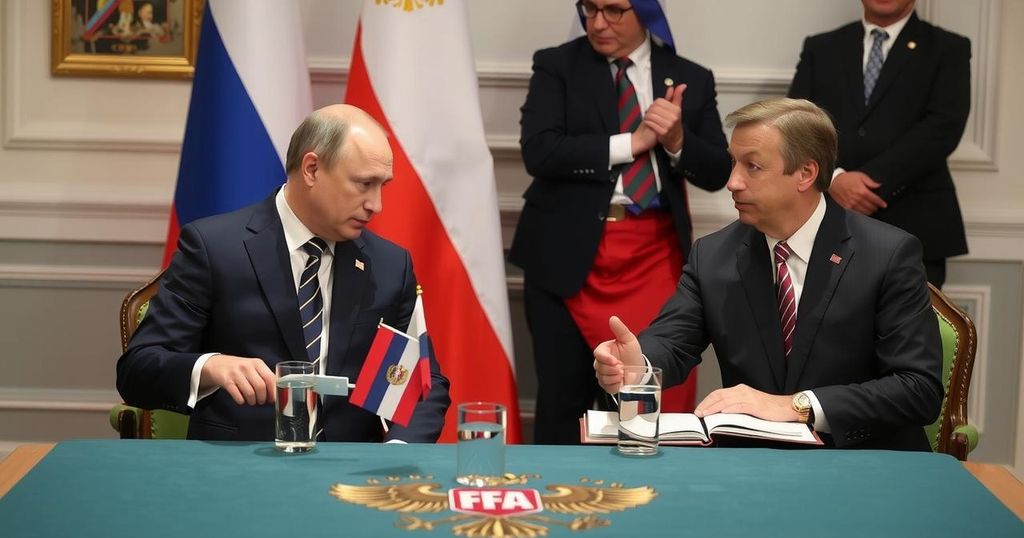Putin Hosts Slovak PM Fico Amid Ongoing Ukraine-Russia Tensions

Ukrainian President Zelensky’s rejection of the renewal of a gas transit agreement prompted Slovak Prime Minister Robert Fico’s rare meeting with Russian President Putin. The meeting addressed concerns over energy supplies and the situation in Ukraine, as Fico’s pro-Russia stance diverges from most EU leaders. Concurrently, reports indicate war crimes committed against Ukrainian POWs by Russian forces, emphasizing the need for international accountability.
The ongoing tensions between Ukraine and Russia continue to escalate, as Russian President Vladimir Putin welcomed Slovak Prime Minister Robert Fico in a rare meeting at the Kremlin, the first by an EU leader since the 2022 invasion. The visit comes amid concerns regarding natural gas supplies, with Slovakia reliant on Russian gas flowing through Ukraine under a deal expiring soon. Following a drone strike in Kazan, which Putin referred to as a significant provocation, the two leaders discussed bilateral relations and the military situation in Ukraine.
Fico, who returned to power with an anti-American stance and has halted military aid to Ukraine, criticized EU sanctions against Russia and expressed intent to block Ukraine’s NATO membership. His meeting with Putin marks a departure from his fellow EU leaders, further complicating regional diplomatic efforts. Concurrently, Ukraine’s President Volodymyr Zelensky has rejected the renewal of natural gas transit agreements that could affect Slovakia.
Despite this, Ukraine’s claims regarding accountability in warfare remain resilient as the Parliamentary Commissioner for Human Rights reported the execution of five Ukrainian POWs by Russian forces, emphasizing the need for international legal action against war crimes. As the situation unfolds, the war’s impact on regional policies and energy security underscores the escalating geopolitical complexities in Eastern Europe.
The Ukraine-Russia conflict, which escalated following Russia’s invasion in February 2022, has profound implications for European energy security and geopolitical dynamics. Slovakia, a member of the EU, has historically depended on Russian natural gas. However, as the conflict prolongs, allegations of war crimes and shifts in political allegiances reflect the changing landscape in European politics, particularly in the context of energy supplies and military support for Ukraine.
The recent meeting between President Putin and Prime Minister Fico illustrates the complex interplay of regional politics within the ongoing Ukraine-Russia war. Fico’s pro-Russia stance contrasts sharply with the positions of other European leaders, contributing to deeper divisions within the EU regarding support for Ukraine. As the situation continues to develop, issues surrounding energy supplies, territorial integrity, and international accountability will remain at the forefront of discussions. These events highlight the critical need for cohesive strategies among European nations in addressing the challenges posed by the ongoing conflict.
Original Source: www.independent.co.uk








